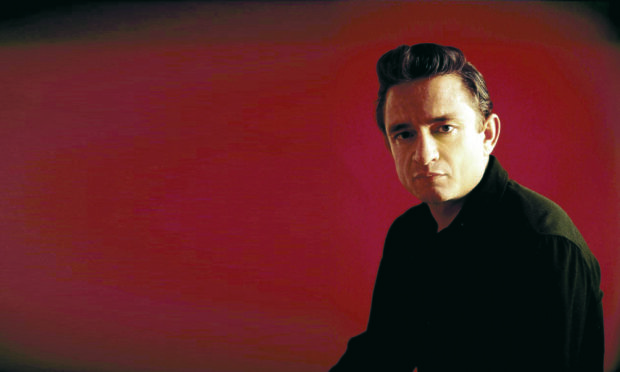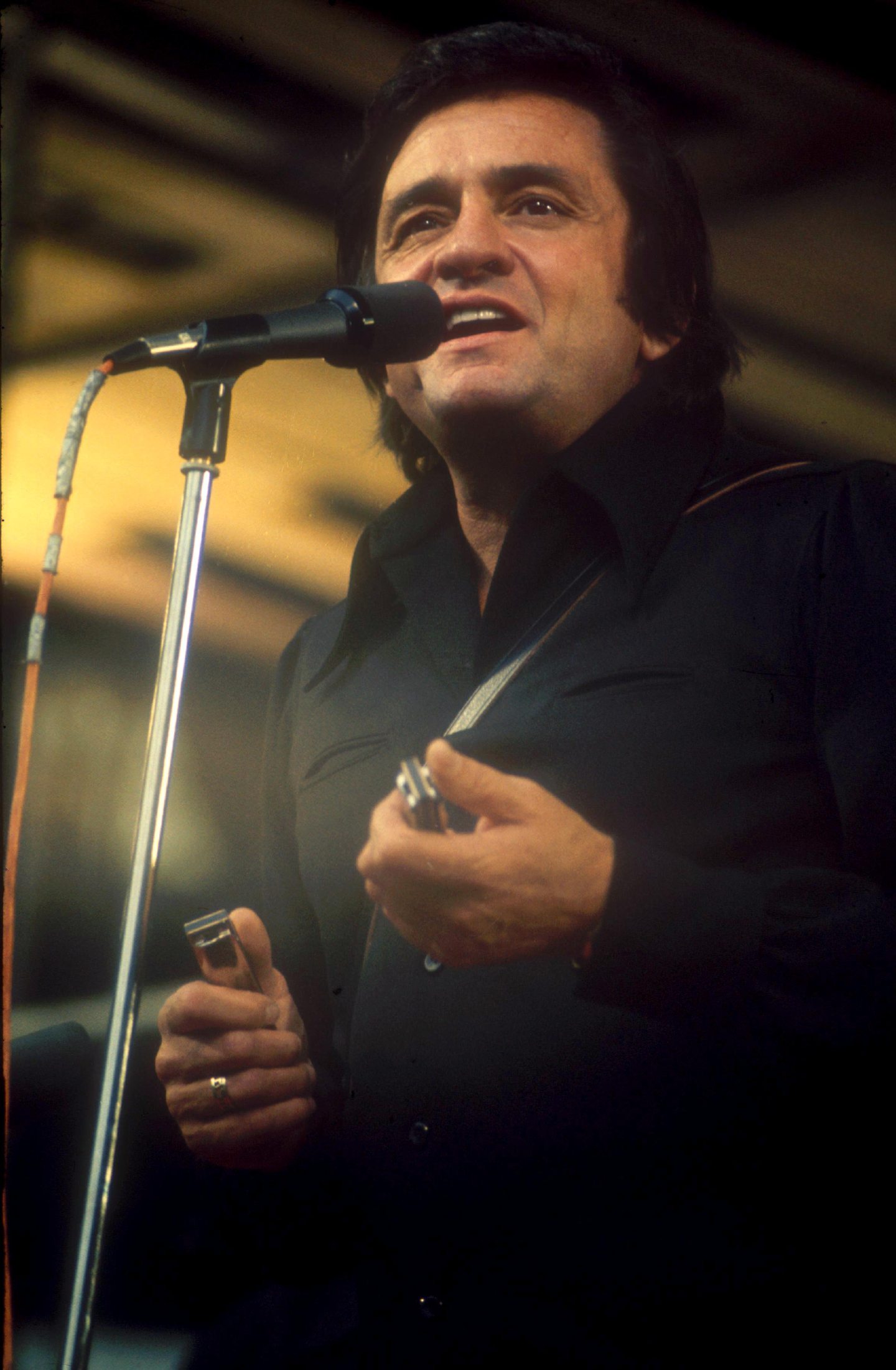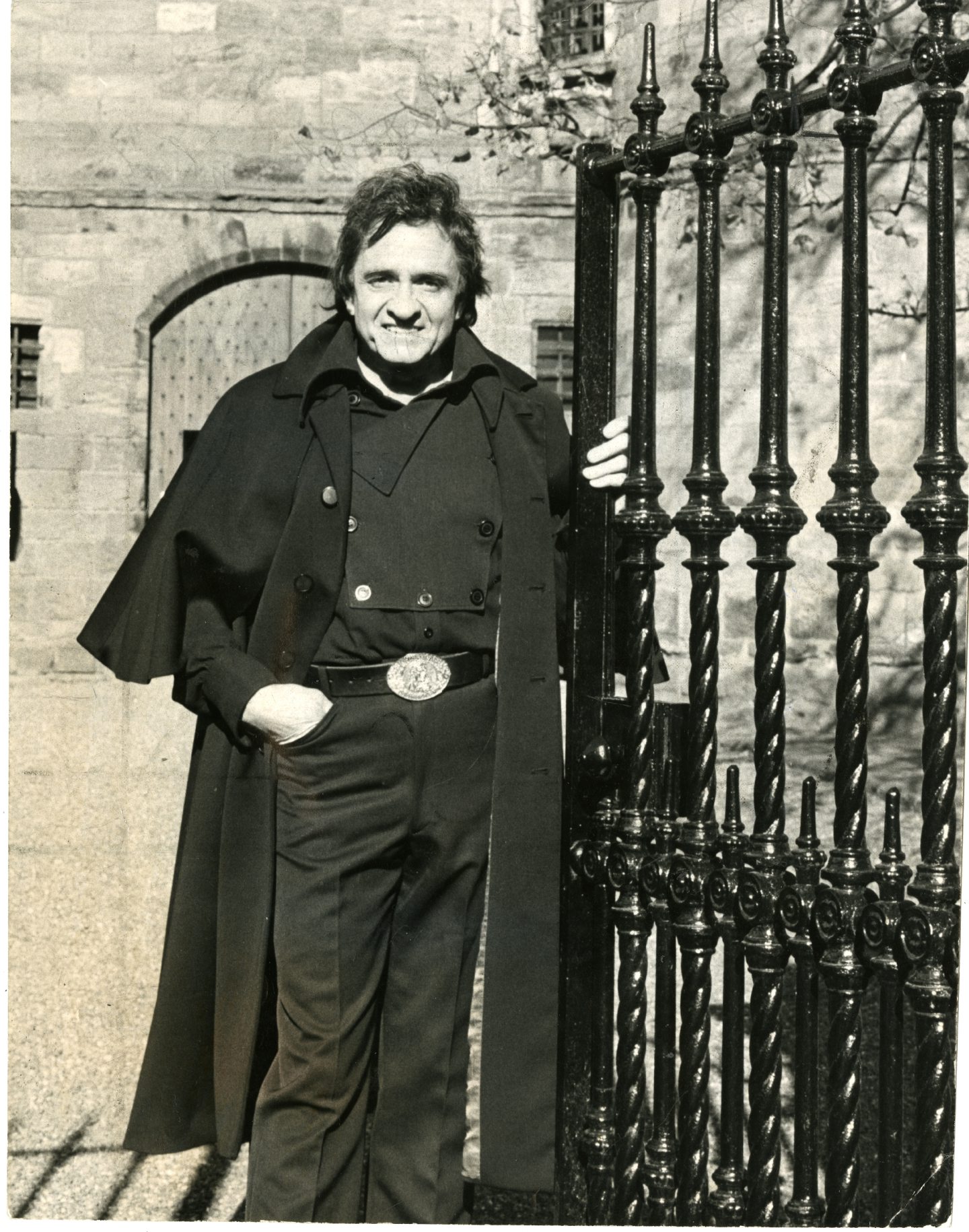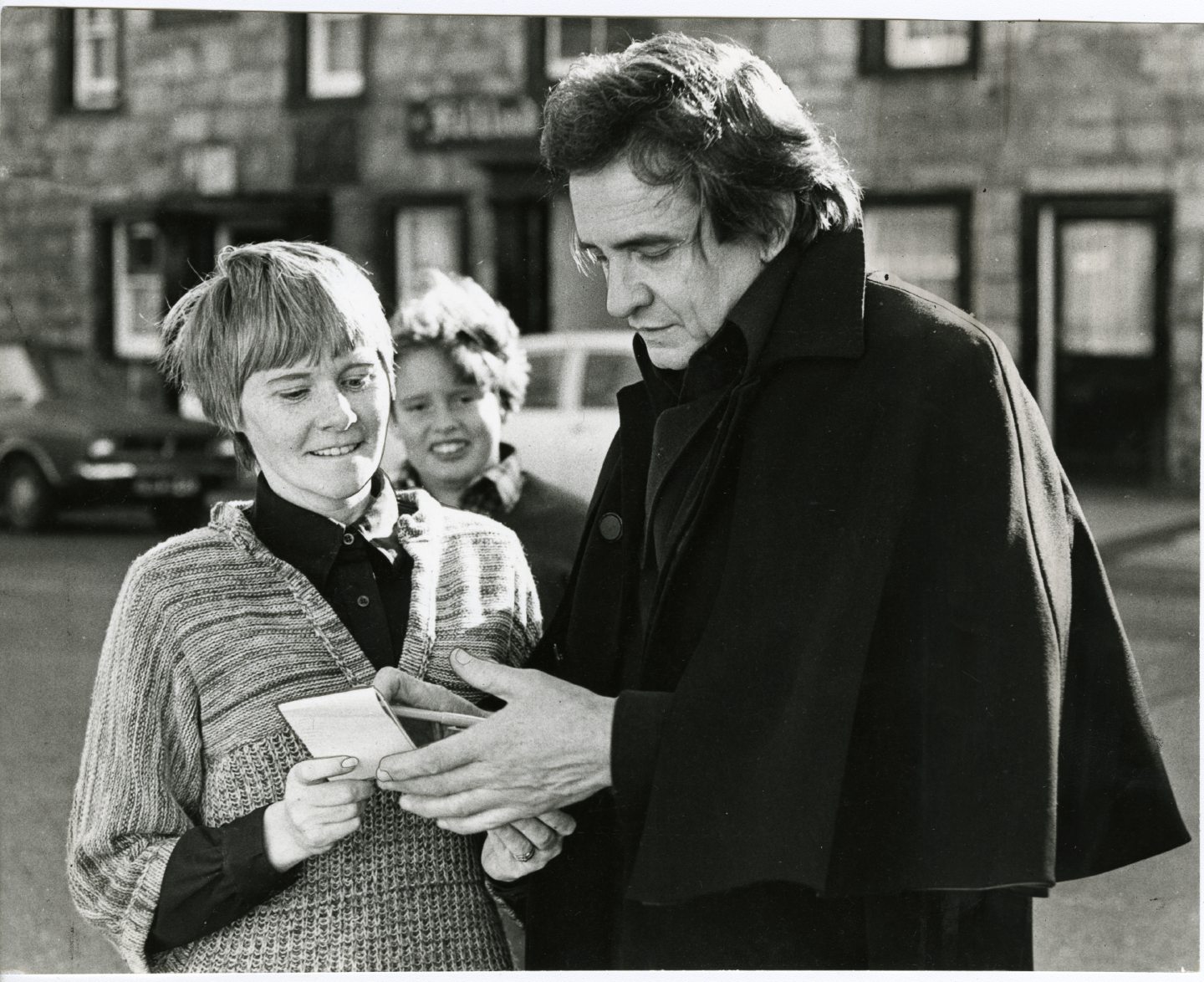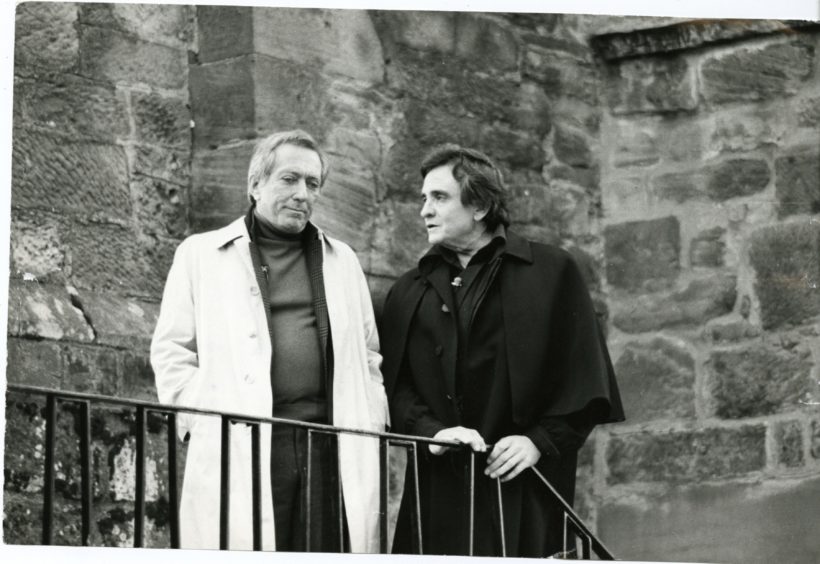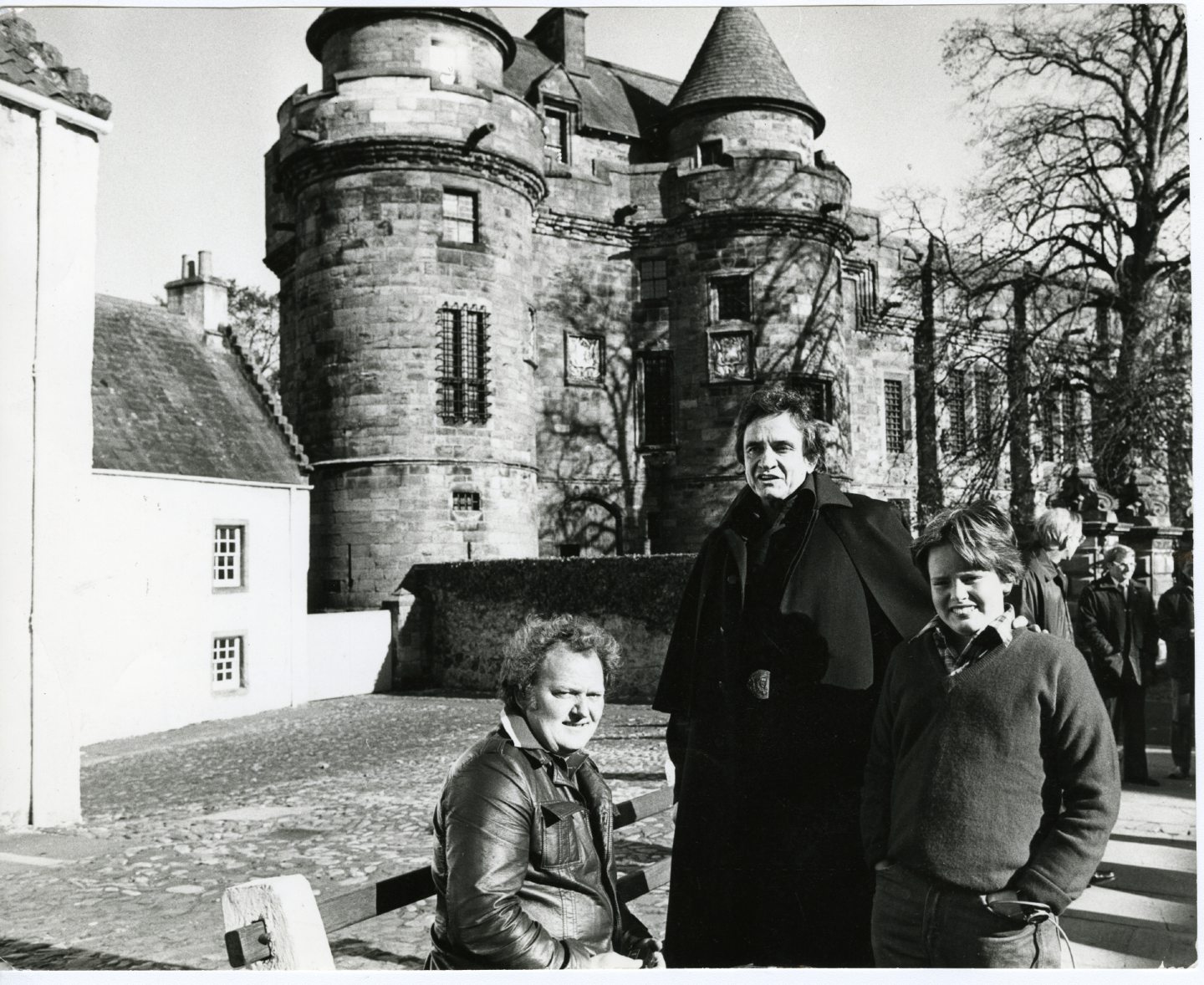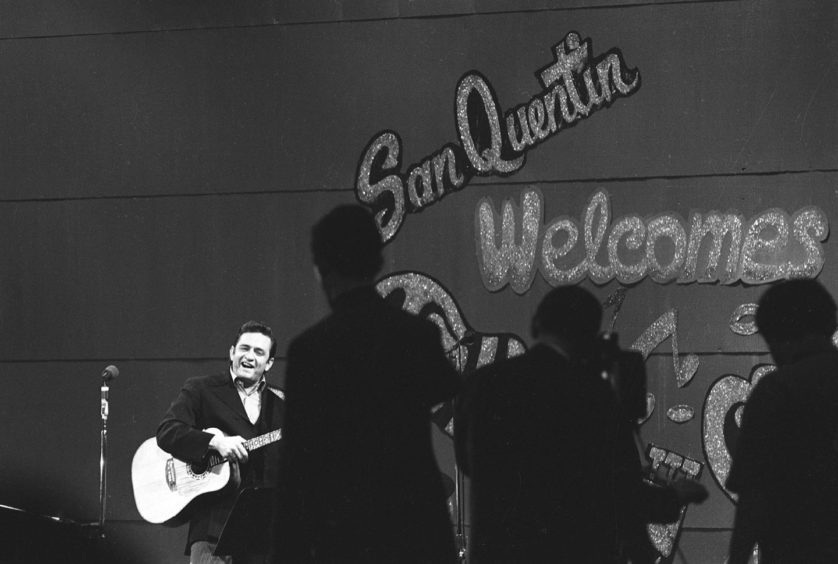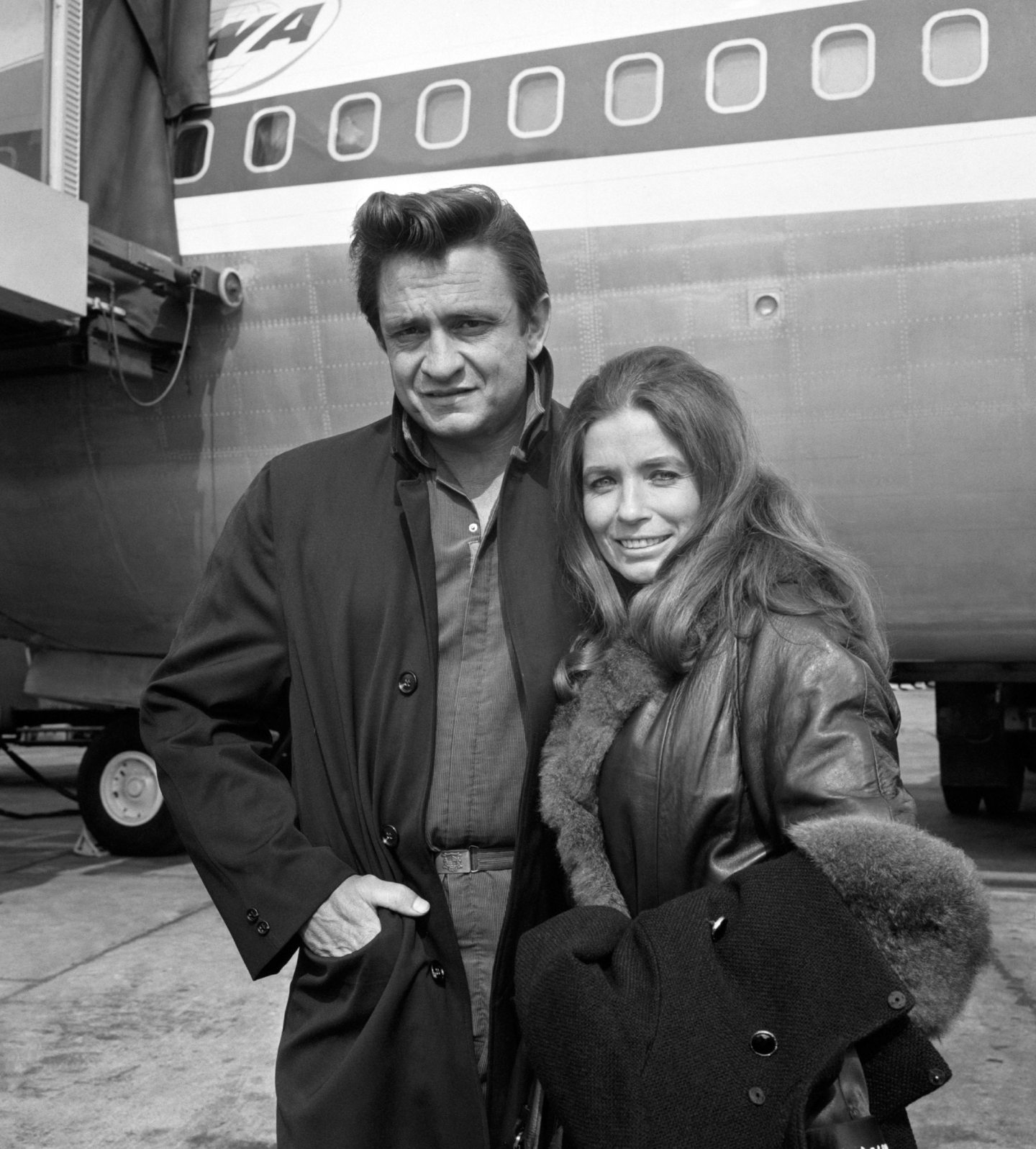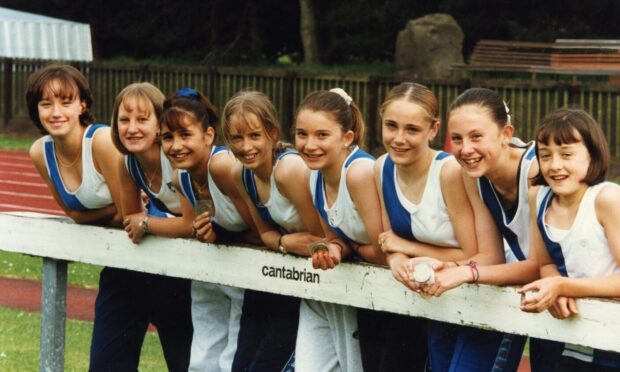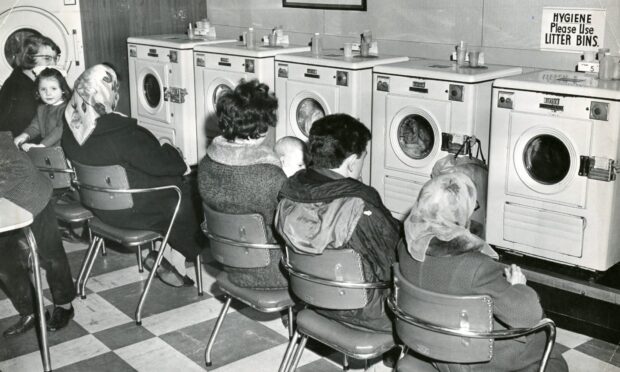“I’m so proud and happy that my family background is associated with such a fine place.”
Johnny Cash was a true Fifer.
Here was a man whose Scottish heritage was hugely important to him.
So much so that Cash filmed a TV special in Falkland in October 1981 and his Fife roots inspired him to create his own family emblem.
Beneath the hand-drawn crest he wrote: ‘Cash – originated in County Fife, Scotland, 1224. Cash progenitor: Ada, sister of King Malcolm IV’.
Born in Arkansas in 1932, Cash learned guitar as a child and began writing songs aged 12, influenced by country, gospel and Irish music.
He decided to research his ancestral history after a chance encounter on a plane in the 1970s with the former laird of Falkland, the late Major Michael Crichton-Stuart.
The two started talking and Cash said he thought he had links to Scotland.
The laird replied: “Well, that is quite a coincidence because where I come from there are lots of places that still hold the Cash name.”
Cash then began to investigate his family tree.
He spent thousands of dollars in the days before computers.
The family traced its ancestry back 800 years to King Malcolm IV of Scotland and had links with the former country retreat of the Stuart kings at Falkland Palace.
Records held by Falkland Palace show that King Malcolm awarded a large estate to the Earl of Fife in 1160 when he married the king’s niece, whose name was Cash or Cashel.
A 15th Century map sited the estate between Falkland and Strathmiglo.
The clan Cash originated from Malcolm’s sister, Ada, and the street Cash Feus in Strathmiglo still carries the name Cash, as do Easter Cash, Wester Cash and Cash Mill farms between Falkland and Strathmiglo.
The American Cash connection came about in 1612 when mariner William Cash sailed from Scotland to Salem, Massachusetts, with a boatload of pilgrims.
He later decided to settle in America.
I wear the black for the poor and the beaten down, living in the hopeless, hungry side of town,
I wear it for the prisoner who has long paid for his crime. ”Lyrics from The Man In Black by Johnny Cash
Going back into his Celtic past made Cash realise that this was where he derived his tone of voice, which always had the texture of granite chips in a tar boiler.
Cash insisted on performing in Falkland for his 1981 Christmas in Scotland TV show and arrived in his trademark black trench coat and leather boots.
It was a memorable day and Cash went down a storm with the locals and parked himself on a bench outside Falkland Palace to chat away to the villagers.
Cash recorded Footprints in the Sand before he was joined by fellow American superstar Andy Williams and the duo performed Greensleeves.
Williams also sang The Village of St Bernadette at Falkland, which was the subject of controversy after the minister strongly objected to it being performed in the church.
His son, John Carter Cash, then aged 11, sang Wee Cooper of Fife, in another segment of the show, which was described as a “Highland fling for the whole family”.
Filming also took place on the beaches at Kinghorn, Anstruther and Elie before moving to St Monans Parish Church, where Cash sang Christmas carols with pupils from St Monans Primary School including Silent Night and O Little Town of Bethlehem.
Fans of the singer packed the church for the recording.
Cash said: “We’ve come here to Scotland to do this year’s Christmas show for several reasons.
“Since my ancestors come from County Fife or the Kingdom of Fife and since the country had declared this to be the year of the Scot, now seemed like a good time to return to the roots.
“Another reason is that June and our son, John Carter, who is featured on this show are dedicated tourists.
“We always find time for sightseeing.”
A performance at Edinburgh Playhouse was also filmed during his time in Scotland, where he performed songs like Ring Of Fire and I Walk The Line.
As 85 million fans of the Man in Black later tucked into turkey while watching his 1981 Christmas special, few realised he had performed with bruised and cracked ribs after almost being killed by his pet ostrich before flying out to Scotland.
By his own account, if it hadn’t been for a big stick, he would have died.
Cash kept a collection of exotic animals at his House of Cash office in Hendersonville, Tennessee, and he blamed the hostile ostrich for starting another of his addictions, this time to painkillers, after its horrendous assault.
As he wrote: “One such spell, the most serious and protracted, began when I took painkillers after eye surgery in 1981, then kept taking them after I didn’t need to.
“It escalated after I was almost killed by an ostrich.
“It occurred during a particularly bitter winter, when below-zero temperatures had reduced our ostrich population by half.
“The hen wouldn’t let herself be captured and taken inside the barn, so she froze to death.
“That, I guess, is what made her mate cranky.”
He went on to describe how the male ostrich had jumped out and confronted him, crouched with wings spread and hissing nastily.
It had leaped in the air and kicked Cash in the gut with its huge toe: “Larger than my size 13 shoe,” the singer explained.
The toe ripped him open and broke several ribs, and Cash reckoned if he hadn’t been wearing a very strong thick belt, his intestines would have been out and he’d have been a goner.
As it was, he kept swinging a big stick at his assailant and it made off.
Cash revealed he was lucky to be alive after the encounter.
He returned to Falkland a year later with his wife where, the story goes, he stopped on the Falkland Hill road to help a young lad change the wheel on his car.
Violin shop owner Bob Beveridge became the singer’s unofficial guide around the area during the 1980s and 90s as he tried to plug the gaps in his family tree.
In March 1991 Cash spent the better part of a week in the area with his sister, where they were told many stories of King Malcolm and his sister, Ada.
His discovery of his Fife roots made such an impression on him that in later years, when he checked into hospital, he would give his name as Malcolm instead of Johnny.
Cash visited Fife several times before he died in Nashville in 2003, aged 71.
He had only survived June by four months.
More like this:
North Sea chill no match for the Man in Black in Aberdeen in 1991
Cliff Richard: Fans battled police during Bachelor Boy’s 1959 Dundee show
